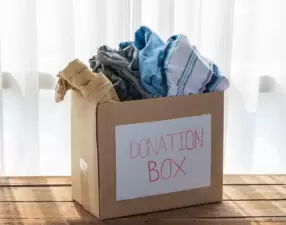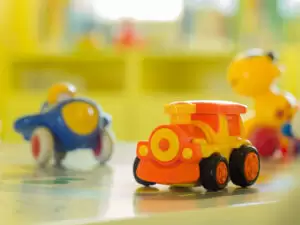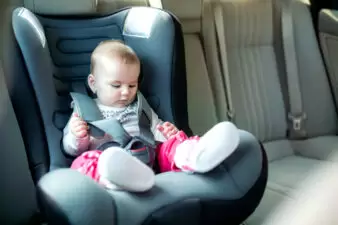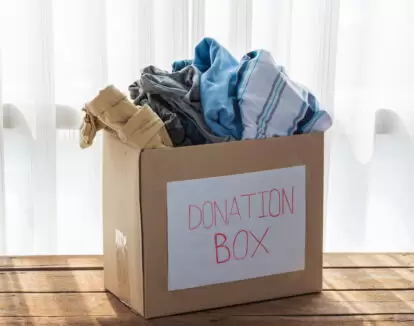
Do you have a lot of clutter in your house? Donating to charity is a viable solution. You’re not only getting all that useless junk out of your house, but you’re also doing something commendable and helping those in need. While your donation is notable, it’s important to keep in mind that there are some items you should never give away to charity.
Certain items may seem like they could be useful, but in reality, they actually create more problems than they solve for charities. Here are 12 items you should never give away to charity under any circumstances.
1. Broken Electronics

Donating electronics that no longer work imposes a burden on charities to dispose of them properly, which can be a lot of effort and money. Such items can also be unsafe if they fail to meet certain operational standards.
It’s better to recycle these through appropriate e-waste programs that are equipped to handle them safely and responsibly. Do your research to see what’s available.
2. Expired Foods

The World Health Organization reports that over 800 million people are going hungry around the world. Going through your pantry to donate food can be a great way to support those in need.
However, expired items are not just inappropriate, they can be dangerous. Charities do not have the resources to sort through expired goods, and distributing them can pose health risks. Always check expiration dates before including food in your donations.
3. Used Personal Care Items

Used toiletries are one of the top items you should never donate to charity. Your old shampoo bottles, used soaps, or partially used deodorants are not hygienic to donate.
These products can harbor bacteria and should not be shared between individuals, particularly in sensitive environments like shelters. It’s best to donate new, unopened personal care products to ensure safety.
4. Old Medications

Just like food, many medications have an expiration date. You run the risk of causing serious health problems in others if you donate these medications.
You never know if you’re donating to someone with a problem. Pharmacies and medical facilities often offer safe disposal services for unused or expired medications. Contact them instead.
5. Recalled or Unsafe Items

Did you buy a toy that’s been recently recalled, but it’s past the return period? Do not donate that item to a charity.
These items were recalled by manufacturers due to safety concerns. Always check recall lists available online through official government websites before donating any items that might be questionable.
6. Mattresses and Box Springs

Bedbugs are a real problem. For that reason, most charities do not accept used mattresses or box springs.
Mattresses and box springs are difficult to clean and transport, making them impractical for donation centers to handle. Purchasing a new mattress for donation is the better option, even though it’s not cost-effective for most people.
7. Incomplete Games and Puzzles

Games and puzzles with missing pieces are frustrating to receive. Just imagine if a kid were to receive one of these items instead of a complete toy. They’d feel pretty bummed out!
Check that your games and puzzles are complete before donating. Sometimes Goodwill or Salvation Army will take these items since people like to use them for craft projects, but be upfront and note that the pieces are missing.
8. Broken Figurines

Maybe you cleaned out your grandmother’s house, and she had a bunch of old statues or figurines that you no longer want to keep. Make sure these items are fully intact before donating.
Because figurines can be sharp and dangerous, they remain on the list of items you should never give away to charity. Plus, it’s difficult to track down and fix the missing piece once it’s broken.
9. Car Seats

Baby products can be pricey. Even if your heart is in the right place, you shouldn’t donate used car seats to charity.
Used car seats can be problematic due to unseen wear and tear that might compromise a child’s safety. They also have expiration dates and safety standards that change regularly, making older models unsuitable for reuse.
10. Sharp Objects and Weapons

You wouldn’t give a dangerous object to your own children, right? The same goes for donating knives, firearms, or other weapons to charity. This is not only inappropriate but could also be illegal. Weapons pose significant safety risks and are not suitable for general charity distribution.
11. Stained Clothing

Clothing is one of the most popular items to donate to charity. In fact, about 2.5 million garments are donated each year according to recent estimates.
Do a quality check before donating your old clothes to charity. If there are holes, stains, or a nasty odor, then these items shouldn’t be donated to charity.
12. Real Fur and Animal Products

Items made from real fur or other animal products are controversial. They may also not align with the ethical policies of some charities.
On top of the ethics, animal products often require special care that recipients at charities might not be able to provide. It’s respectful to consider these factors before donating.
Donate With Care

There are certain items you should never give away to charity. By avoiding these donations, you can ensure that your contributions are both helpful and appreciated. Remember, donating to charity is about providing quality over quantity. Thoughtful giving is the best way to truly make a difference.
Read More:
12 Generous Acts of Charity by Wealthy Individuals That Made a Difference
Donate Clothes for a Tax Write Off

Alyssa Serio has been a writer and editor since graduating from Aurora University in 2014. In her free time, she loves reading, playing volleyball, and watching any horror movie (even the bad ones) with her husband.

